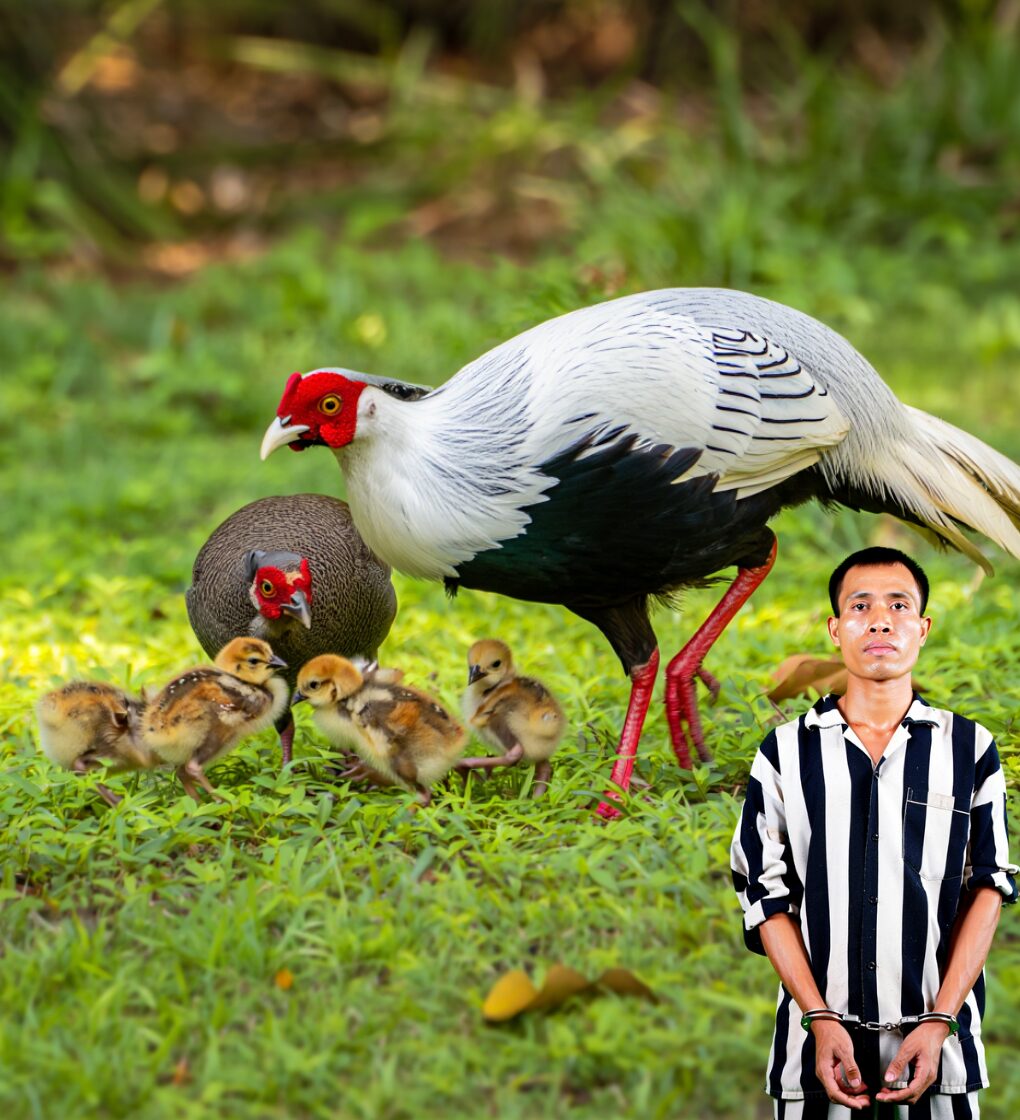In a small rural district of Nghệ An Province, Vietnam, a man named Thái Khắc Thành began breeding a striking and rare bird: the silver pheasant (Lophura nycthemera). With its elegant white feathers, long tail, and deep cultural symbolism, this bird has long been admired in Southeast Asia. But in Vietnam, it is more than just beautiful—it is officially listed in the country’s Red Data Book, which means it is a protected species under strict wildlife conservation laws.
Thành acquired thirteen of these birds with the hope of breeding them and selling the offspring for profit. However, under Vietnamese law, trading in endangered or rare animals without special government permits is a serious criminal offense.
In April 2025, police intercepted Thành while he was transporting ten silver pheasants to a buyer in another province. A search of his home revealed three more birds. Authorities confirmed the species was on the prohibited list, and prosecutors argued that his actions contributed to illegal wildlife trade, threatening conservation efforts.
Despite claims that he was simply raising and breeding the birds, the court ruled that he had knowingly violated Vietnam’s wildlife protection laws. Thành was sentenced to six years in prison—a punishment that has sparked debate online about the balance between protecting endangered species and supporting rural livelihoods.
The case is a reminder that in Vietnam, as in many countries, ignorance of the law is not a defense—especially when it comes to the protection of endangered wildlife.
